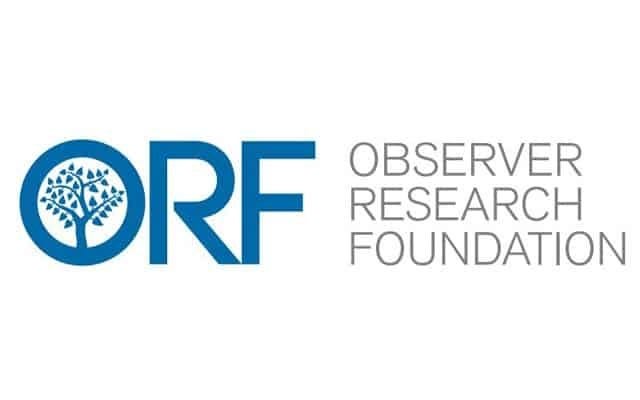The Observer Research Foundation (ORF) presents an in-depth analysis of India's medical supply chains with a focus on sustainability and climate resilience. This research examines the transition to sustainable cold supply chains in the healthcare sector, exploring the economic benefits and emissions reduction potential. While considering the significance of renewable energy and infrastructure, the ORF offers insights into building climate-resilient medical supply chains.
The Current Carbon Footprint:
India's healthcare sector relies heavily on conventional cold supply chains, leading to significant carbon emissions. The ORF evaluates the existing carbon footprint of medical supply chains and highlights the urgency of transitioning to more sustainable practices.

Economic Implications of Sustainable Transitions:
The ORF employs a cost-benefit framework to analyze the economic implications of transitioning to climate-resilient medical supply chains. This assessment involves examining investment costs, operational savings, and potential long-term benefits for the healthcare industry.
Enhancing Climate Resilience:
Building climate-resilient medical supply chains is crucial in mitigating the impacts of climate change on the healthcare sector. The ORF identifies key strategies to enhance climate resilience, including technological advancements and disaster preparedness measures.
Infrastructure and Renewable Energy Integration:
Infrastructure development plays a vital role in facilitating sustainable cold supply chains. The ORF explores how modernizing infrastructure and integrating renewable energy sources can reduce the carbon footprint of medical supply chains.
Promoting Renewable Medical Supply Chains:

The ORF advocates for the promotion of renewable medical supply chains in India. This includes encouraging the use of sustainable refrigeration technologies, efficient transportation systems, and eco-friendly packaging solutions.
Emissions Reduction Targets:
Assessing emissions reduction potential is essential in understanding the impact of transitioning to sustainable cold supply chains. The ORF outlines achievable emissions reduction targets and the timeline for their implementation.
Collaborative Efforts: Public-Private Partnerships (PPPs):
Public-Private Partnerships (PPPs) play a crucial role in driving sustainable transitions in the healthcare sector. The ORF explores collaborative efforts between the government, private enterprises, and civil society organizations to promote sustainable practices.
The Role of Innovation and Research:
Innovation and research are instrumental in identifying cutting-edge solutions for sustainable cold supply chains. The ORF highlights the need for continuous research and development to enhance climate-friendly medical supply systems.
Conclusion:

Valuing the Cold Carbon is a comprehensive research initiative by the Observer Research Foundation (ORF) to create a cost-benefit framework for transitioning India's medical supply chains to sustainability. Through the integration of renewable energy, infrastructure development, and collaborative efforts, India can achieve climate-resilient cold supply chains and contribute to emissions reduction in the healthcare sector. The ORF remains dedicated to providing evidence-based insights and recommendations to shape a sustainable future for medical supply chains in India.





